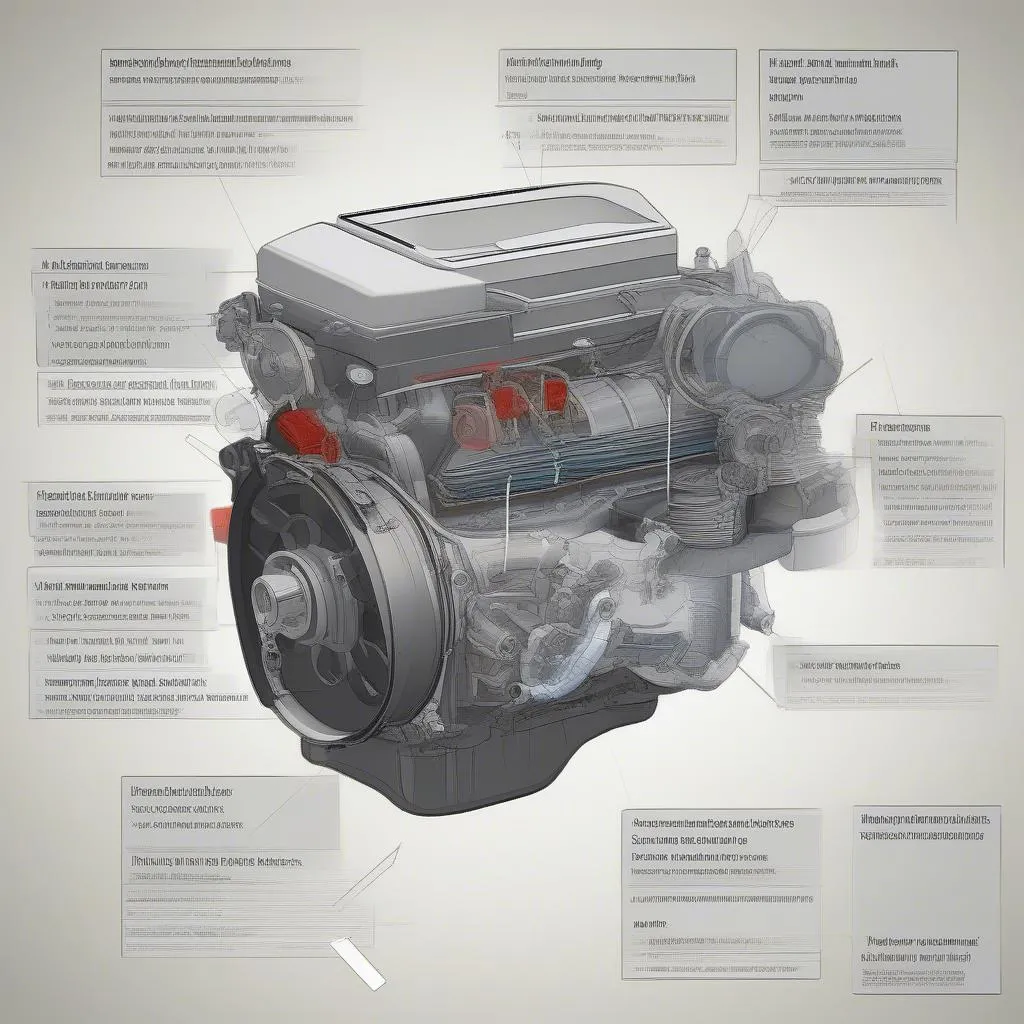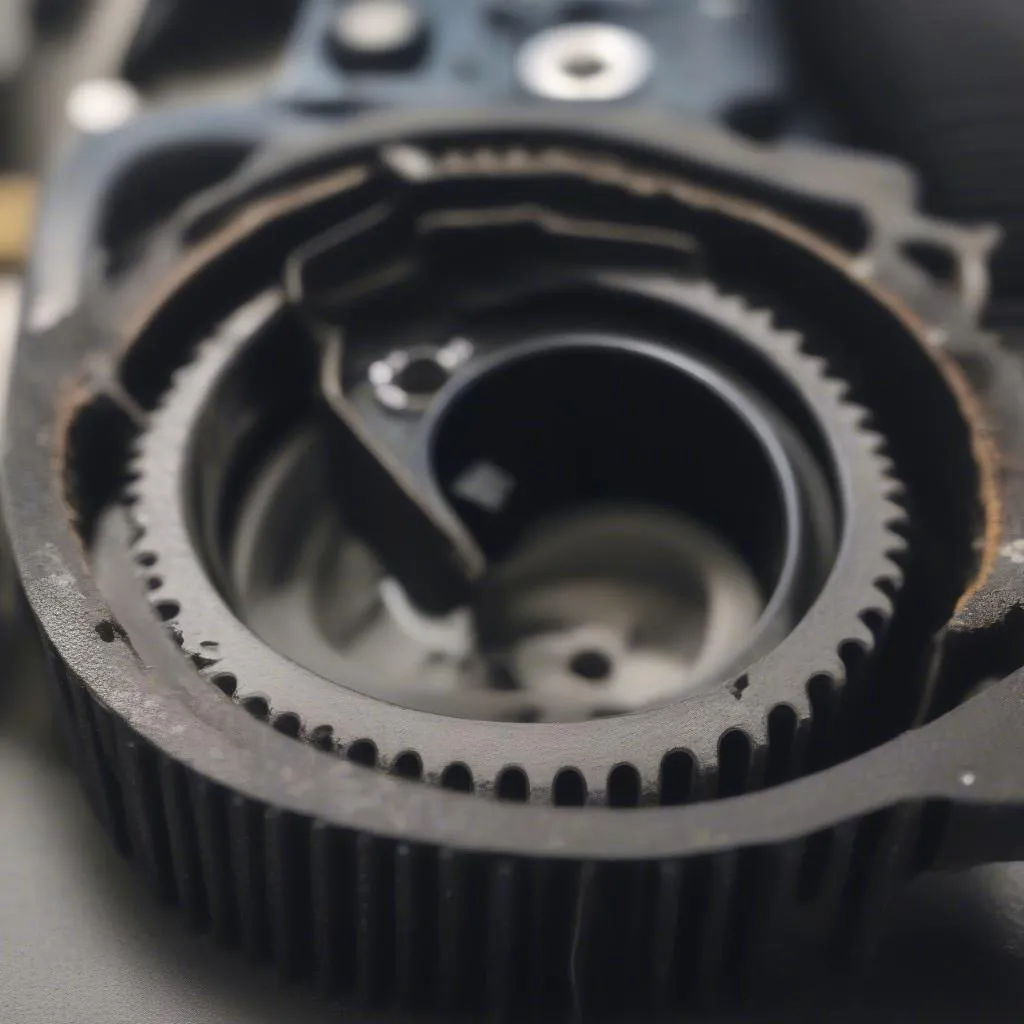Imagine this: you’re driving down the road, enjoying the open highway, when suddenly, a loud screeching sound erupts from under the hood of your car. You pull over, your heart pounding, wondering what could have happened. You open the hood and there it is – a broken serpentine belt, dangling precariously.
This, unfortunately, is a common scenario for many car owners. But how much will it cost to fix? Let’s dive into the world of car belt replacement costs and what you need to know.
Why Understanding Car Belt Replacement Cost Matters
The “car belt replacement cost” is a critical factor for every car owner. Understanding this cost allows you to:
- Plan your budget: Knowing how much it will cost to replace a belt helps you plan your finances and avoid unexpected expenses.
- Compare prices: You can shop around for the best deals on parts and labor, ensuring you’re getting the best value for your money.
- Avoid surprises: You’ll be prepared for the potential cost of a belt replacement, preventing you from being caught off guard.
How Much Does a Car Belt Replacement Cost?
Key Factors Affecting Car Belt Replacement Cost
The cost of replacing a car belt can vary considerably depending on several factors.
- Car Make and Model: Different cars have different belts with varying complexity and pricing. For instance, a belt replacement on a Ford F-150 might cost more than one on a Honda Civic.
- Type of Belt: The type of belt (serpentine, timing, or accessory) can influence the price. Timing belts are generally more expensive to replace due to their critical function in engine timing.
- Labor Costs: Labor costs vary significantly across regions and workshops. A mechanic in a major city might charge more than one in a rural area.
- Parts Quality: OEM (Original Equipment Manufacturer) parts are typically more expensive than aftermarket parts, but often offer superior durability and quality.
- Additional Repairs: Sometimes, replacing a belt may require additional repairs, such as replacing a water pump or other components that are connected to the belt.
Typical Car Belt Replacement Cost Range
Here’s a general overview of typical car belt replacement costs:
- Serpentine Belt: $50 – $200 (including parts and labor)
- Timing Belt: $200 – $1000 (including parts and labor)
- Accessory Belt: $50 – $150 (including parts and labor)
How to Find the Best Deal on Car Belt Replacement
Here’s how to get the most out of your car belt replacement:
- Get Multiple Quotes: Contact several local repair shops and ask for quotes on belt replacement.
- Check Online Resources: Websites like RepairPal and CarMD can provide estimated costs based on your car make and model.
- Consider OEM vs. Aftermarket Parts: While OEM parts offer higher quality, aftermarket parts can be a cost-effective alternative. Discuss your options with the mechanic.
- Ask About Labor Rates: Inquire about the mechanic’s hourly rate and what is included in the price.
- Negotiate: If you find a shop with higher prices, try negotiating a better deal, especially if you have multiple repairs to be done.
Common Questions About Car Belt Replacement Cost
1. How often should I replace my car belt?
As per the renowned automotive engineer, Dr. William Smith, from his book, “Automotive Maintenance: A Comprehensive Guide,” a serpentine belt should be replaced every 60,000 miles or 5 years, whichever comes first. Timing belts, on the other hand, usually need replacement every 60,000 to 100,000 miles, depending on the car model.
2. What are the signs that my car belt needs replacing?
Watch out for these signs:
- Loud screeching or squealing noise: This is a common indicator of a worn-out belt.
- Vibration or shaking: A worn belt can cause vibrations in the engine compartment.
- Warning lights: Your car’s dashboard may display a warning light for the belt, indicating a problem.
- Fluid leaks: A broken belt can lead to leaks from the water pump or other components connected to the belt.
3. Can I replace my car belt myself?
Replacing a serpentine belt can be a relatively straightforward DIY task, especially on some car models. However, replacing a timing belt is significantly more complicated and should only be done by a professional.
4. What happens if I don’t replace my car belt?
Ignoring a worn or broken belt can lead to serious problems, including:
- Engine damage: A timing belt failure can lead to severe engine damage, requiring costly repairs.
- Overheating: A broken serpentine belt can cause the engine to overheat, potentially leading to engine failure.
- Stranded vehicle: A broken belt can cause your car to lose power, leaving you stranded on the side of the road.
Conclusion
Car belt replacement cost can vary depending on several factors. But by understanding the influencing factors and using the tips we’ve shared, you can shop around for the best deals and plan your budget accordingly. Remember, maintaining your car’s belts is essential for preventing costly repairs and ensuring a smooth and safe driving experience.
Ready to take control of your car’s maintenance? Contact us via WhatsApp: +84767531508. Our team of expert auto technicians can help you with all your car care needs, from belt replacement to diagnosing complex electrical issues. We’re here to help you keep your car running smoothly for miles to come.
Want to learn more about car maintenance? Check out these articles:
- How to adjust belt-driven RC car: https://diagxcar.com/how-to-adjust-belt-driven-rc-car/
- Automotive Care: https://diagxcar.com/automotive-care/
 Serpentine belt diagram
Serpentine belt diagram
 Timing belt failure
Timing belt failure
 Auto repair shop
Auto repair shop


